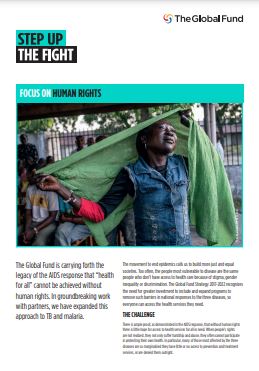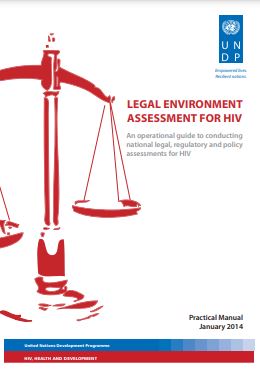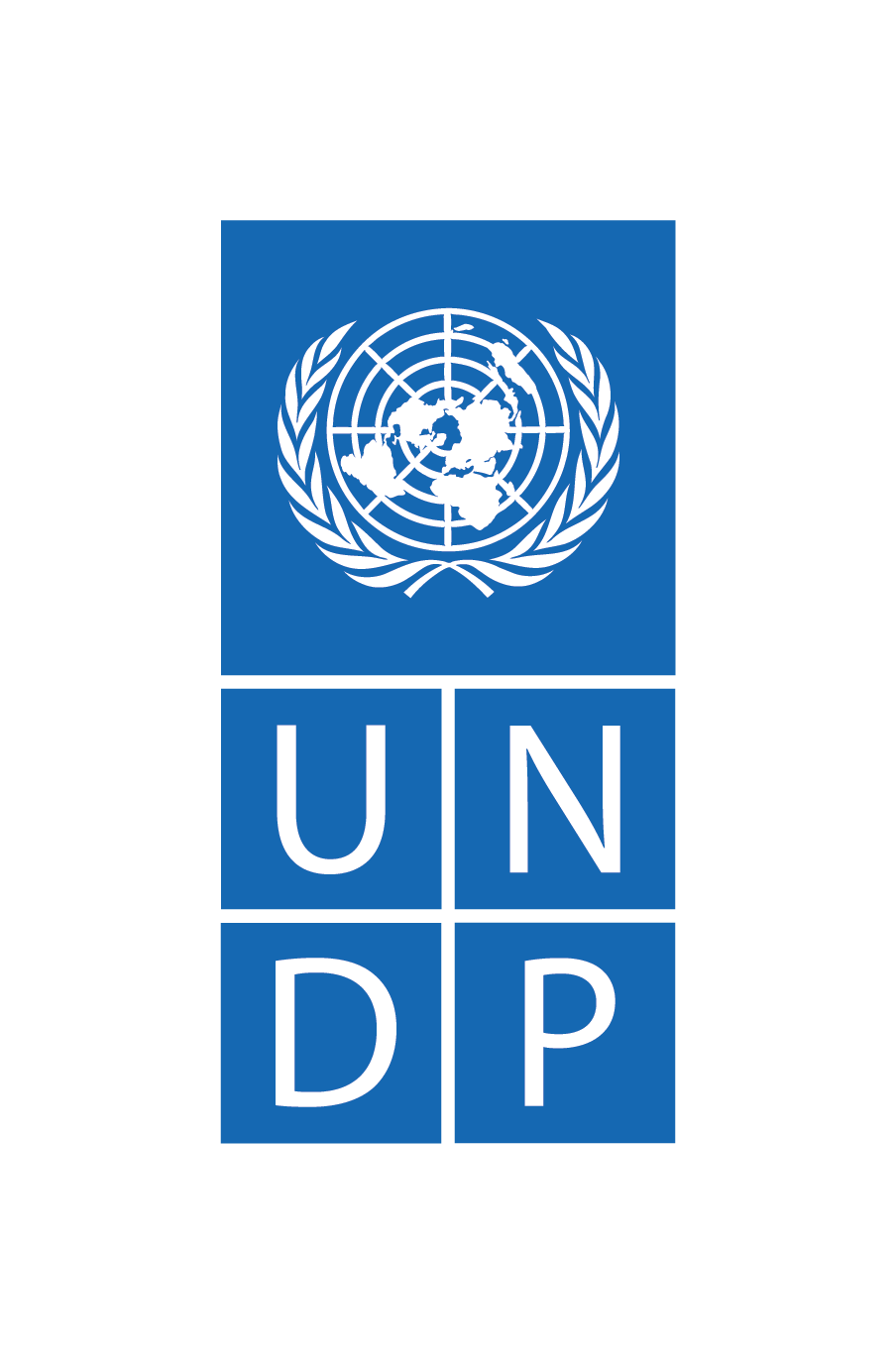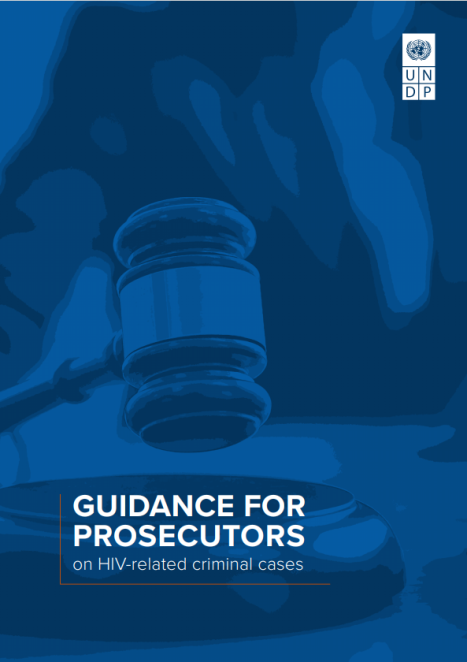Enabling legal and policy environments for health
Overview
The law has a profound impact on people’s lives—especially those who are vulnerable and marginalized. Effective and sustainable responses to HIV, tuberculosis (TB) and malaria require legal and policy environments that are based on evidence and human rights to reduce the inequalities and social exclusion that drive poor health. To effectively control these three diseases, and mitigate their impact, it is crucial to address laws and policies that criminalize and dehumanize people living with HIV, key population and other vulnerable groups, which drive them away from essential health services and heighten their risks of infection.
Similarly, laws that countries have implemented in response to the COVID-19 pandemic, for instance on quarantine measures, disease surveillance, legal measures relating to mask-wearing, social distancing and access to medication and vaccines greatly affect the inclusivity and, ultimately, the success of their responses and the health and well-being of their citizens, including marginalized groups.
The absence of enabling laws and policies, punitive laws and the inadequate access to justice contributes to the inequalities that undermine HIV responses.
- According to the United Nations Programme on HIV/AIDS (UNAIDS):
- At least 92 countries criminalize HIV exposure, non-disclosure and/or transmission of the disease.
- People living with HIV continue to be blocked from entry, stay or residence in 48 countries or territories.
- Several countries criminalize key populations. (See section on key populations).
- The health and well-being of people in prison and other closed settings are routinely put at risk by punitive laws and policies, including by denying them access to essential health service.
- Age-of-consent laws for accessing testing, treatment, and sexual and reproductive health services, as well as policies that limit access to comprehensive sexuality education, hinder young people from acquiring life-saving information and making decisions about their health.
The Global AIDS Strategy 2021 – 2026 calls for the creation of enabling legal environments by removing punitive and discriminatory laws and policies as a priority action. United Nations Member States committed to “creating enabling legal environments by reviewing and reforming, as needed, restrictive legal and policy frameworks” in the 2021 Political Declaration on HIV and AIDS.
Global Commission on HIV and the Law
The Global Commission on HIV and the Law was an independent body convened by UNDP in 2010 on behalf of the Joint United Nations Programme on HIV/AIDS. The Global Commission examined the impact of laws, policies, and practices on HIV in various regions of the world. The Commission’s report and supplement interrogate the relationship between HIV and the law, and includes recommendations covering the breadth of the HIV response, including:
- HIV-related stigma and discrimination
- criminalization of HIV transmission, exposure and non-disclosure, and of key populations, including people who use drugs (PWUD), sex workers, men who have sex with men (MSM), transgender persons, prisoners and migrants
- gender-based violence, discrimination and inequalities
- children and adolescents
- innovation, intellectual property and access to treatment
- rights-based responses to TB and viral hepatitis
- immigration policies
- rights-based use of digital technologies in HIV and health
- declining donor funding for the diseases.
UNDP has worked with governments, United Nations entities, civil society organizations and other stakeholders to follow up on the recommendations of the Global Commission on HIV and the Law in 90 countries. Learn more here.
In 2020, the Program on Global Health and Human Rights, Institute on Inequalities in Global Health at the University of Southern California undertook an independent evaluation of the impact of the Global Commission on HIV and the Law, its report and the work to implement the Commission’s recommendations. The evaluation noted that the Global Commission was a critical platform which helped shape global action on HIV and the law, influencing global discussions, financing and programmes. The report and the executive summary of the evaluation are available here.
Global Partnership for Action to Eliminate All Forms of HIV-related Stigma and Discrimination
The Global Partnership for Action to Eliminate All Forms of HIV-related Stigma and Discrimination (Global Partnership) is co-convened by the Global Network of People living with HIV (GNP+), UNDP, United Nations Women, the joint United Nations Programme on HIV/AIDS (UNAIDS) Secretariat and The Global Fund to Fight AIDS, Tuberculosis and Malaria (The Global Fund) , and with leadership and technical support from the non-governmental organization delegation to the UNAIDS Programme Coordinating Board (PCB). The Global Partnership creates an opportunity to harness the combined power of governments, civil society organizations, bilateral and multilateral donors, academia and the United Nations to eliminate HIV-related stigma and discrimination to history.
The Global Partnership has identified six priority settings for action to address HIV-related stigma and discrimination: community, workplace, education, healthcare, justice, and emergency/humanitarian. UNDP supports the country scale up of evidence-based interventions to address stigma and discrimination, in particular in the justice sector. Twenty-six countries have joined the Global Partnership so far, committing to taking action across these settings.
UNDP’s approach
- UNDP supports countries to implement the recommendations of the Global Commission on HIV and the Law, including through the Global Fund to Fight AIDS, Tuberculosis and Malaria (The Global Fund) grants and on issues of innovation and access to health technologies. This is done in partnership with governments, civil society organizations, academia, and United Nations partners.
- It supports member countries of the Global Partnership for Action to Eliminate All Forms of HIV-related Stigma and Discrimination to adopt and implement evidence-based interventions that address stigma and discrimination in the six priority settings of the Global Partnership, namely community, educational, workplace, healthcare, justice and humanitarian settings.
- UNDP scales up access to justice programmes for HIV and health that are focused on the inclusion of civil society organizations and the sensitization of the judiciary, parliamentarians, and law enforcement.
- It supports countries to identify and respond to legal, human rights and structural barriers, including through legal environment assessments.
- UNDP prevents and responds to HIV-related human rights crises.
Addressing stigma and discrimination within efforts to remove human rights barriers
Stigma is the prejudice that comes with labelling an individual as part of a group that is believed to be socially unaccepted. HIV- or tuberculosis (TB)-related stigma refers to irrational or negative attitudes, behaviours and judgement towards a person based on their real or perceived HIV or TB status.
HIV- or TB-related discrimination is any distinction, exclusion, or restriction (sometimes referred to as acts or omissions) based indirectly or directly on a person’s real or perceived HIV or TB status. Discrimination in the context of HIV or TB also includes acts and omissions aimed at other key populations and groups at heightened risk of HIV or TB.
Stigma and discrimination impede HIV services, limiting access to and acceptance of prevention services, engagement in care and adherence to treatment. The Global AIDS Strategy 2021 – 2026 has set the ambitious target of wanting “less than 10% of people living with HIV and key populations [to] experience stigma and discrimination”. Programmes to remove human rights barriers should include interventions that reduce stigma and discrimination. See Evidence for eliminating HIV-related stigma and discrimination for interventions to reduce stigma and discrimination.
Tools and examples
Several key resources are provided in this section. Among these, some critical tools and frameworks that inform UNDP’s approach to legal and policy environments for health include:
- Global AIDS Strategy 2021 – 2026 – End Inequalities. End AIDS
- Political Declaration on HIV and AIDS: Ending Inequalities and Getting on Track to End AIDS by 2030
- Political Declaration on the fight against Tuberculosis – United to End Tuberculosis: An Urgent Global Response to a Global Epidemic (2018)
- UNDP Connecting the Dots: Towards a More Equitable, Healthier and Sustainable Future: UNDP HIV and Health Strategy 2022-2025
- UNDP, Legal environment assessment for HIV: An operational guide to conducting national legal, regulatory and policy assessment for HIV
- UNDP, Stop TB Partnership, Legal environment assessments for tuberculosis: An operational guide (2017)
- Global Commission on HIV and the Law, HIV and the Law: Risks, Rights and Health (2012)
- Global Commission on HIV and the Law, HIV and the Law: Risks, Rights and Health, Supplement (2018)
Case study: A regional approach to removing legal barriers to HIV service access
The UNDP-managed Global Fund to Fight AIDS, Tuberculosis and Malaria (The Global Fund) Africa Regional Grant on HIV: Removing Legal Barriers, which concluded in 2019, addressed human rights barriers faced by vulnerable communities in Africa. The grant covered 10 countries: Botswana, Côte d’Ivoire, Kenya, Malawi, Nigeria, Senegal, the Seychelles, Tanzania, Uganda and Zambia. In addition to other interventions, the programme trained lawyers and activists on the use of strategic litigation, legal defence, and advocacy efforts as vital tools to counter criminalization of HIV and tuberculosis (TB).
The programme also worked at the continental and regional levels with the African Union Commission and key Regional Economic Communities (Southern African Development Community, Economic Community of West African States and East African Community) to promote the alignment of national laws and policy with regional and international human rights commitments.
Learn more about the programme here.
Case study: Sensitizing judiciary on HIV, tuberculosis and sexual and reproductive health and rights
As part of the UNDP-managed Global Fund to Fight AIDS, Tuberculosis and Malaria (The Global Fund) Africa Regional Grant on HIV, the Regional Judges Forum brought together members of the judiciary from countries across Africa to meet and discuss HIV and tuberculosis (TB) law and human rights issues in the region. The Judges Forum provided opportunities for judges to hear expert medical, scientific and legal evidence on matters relating to HIV, TB and the law as well as to hear about the impact of the law directly from key populations, including sex workers, gay and bisexual men and men who have sex with men, transgender people, women and girls and prisoners on sexual and reproductive health and rights.
The judiciary discussed landmark judgements affecting the rights of people in the context of HIV and TB and share experiences and insights. Members of the Regional Judges Forum were sensitized on matters relating to HIV, TB, law and human rights and have presided over precedent-setting judgements in the region. For example, they have acted as resource persons to train paralegal staff and clerks in courts in Kenya. Some of the Forum members were part of the High Court of Kenya which ruled the criminalization of HIV transmission as unconstitutional in law. In Botswana a member of the Forum was part of a ruling that entitled foreign prisoners to HIV treatment.
The judges have also participated in sensitizing their peers to health and human rights issues and supported the institutionalization of training on HIV, sexual and reproductive health and rights, TB and human rights within judicial training curricula across Africa. This approach has led to the development of a core group of committed judges determined to sustain judicial excellence on health and human rights issues in the years ahead.
Case study: Seychelles legal environment assessment strengthens the national HIV response
After conducting an assessment of the legal, regulatory and policy framework to respond to HIV in Seychelles in 2013, the government, civil society organizations and development partners took various steps to address critical enablers, thereby strengthening the law, rights, and policy framework for affected populations.
This included:
- updating the Misuse of Drugs Act, 2016 to provide for needle and syringe exchange and substitution therapy programmes as well as to refer people who use drugs to effective rehabilitation programmes in place of imprisonment
- repealing section 155 of the Penal Code to decriminalize sex between men
- amending the Employment Policy to strengthen protection for employees with HIV
- working with immigration authorities to ensure that details of HIV status are no longer required for a Gainful Occupation Permit
Key resources


Step Up the Fight: Focus on Human Rights
The Global Fund
PDF


COVID-19 Law Lab
UNDP, UNAIDS, WHO, O’Neill Institute, Inter-Parliamentary Union, IDLO
Website

Issue Brief: Advancing Human Rights, Equality, and Governance to end AIDS
United Nations Development Programme
Website

A practical guide: Implementing and scaling up programmes to remove human rights-related barriers to HIV services
The Global Fund and Frontline AIDS
PDF

Human rights and gender programming in challenging operating environments (COEs)
(Document currently unavailable)
The Global Fund
PDF

Technical brief: Malaria, Gender and Human Rights
The Global Fund
PDF

Technical brief: HIV, Human Rights and Gender Equality
(Document currently unavailable)
The Global Fund
PDF

Technical brief: Tuberculosis, Gender and Human Rights
The Global Fund
PDF

Legal environment assessment for HIV: An operational guide to conducting national legal, regulatory and policy assessment for HIV
United Nations Development Programme
PDF

Legal environment assessments for tuberculosis: An operational guide
United Nations Development Programme & Stop TB Partnership
PDF

Making the Law work for woman and girls in the context of HIV
United Nations Development Programme
PDF

HIV and the Law: Risks, Rights and Health
Global Commission on HIV and the Law
PDF

HIV and the Law: Risks, Rights and Health, Supplement
Global Commission on HIV and the Law
PDF

Declaration on the rights of people affected by TB
Stop TB Partnership and TRB People
PDF

HIV and Stigma and Discrimination
UNAIDS Human Rights Fact Sheet Series
PDF

Preventing and Responding to HIV Related Human Rights Crises – Guidance for UN Agencies and Programmes
UNDP, UNFPA, ILO, UNODC, UNICEF, UNHCR, Global Fund, UNAIDS
PDF




